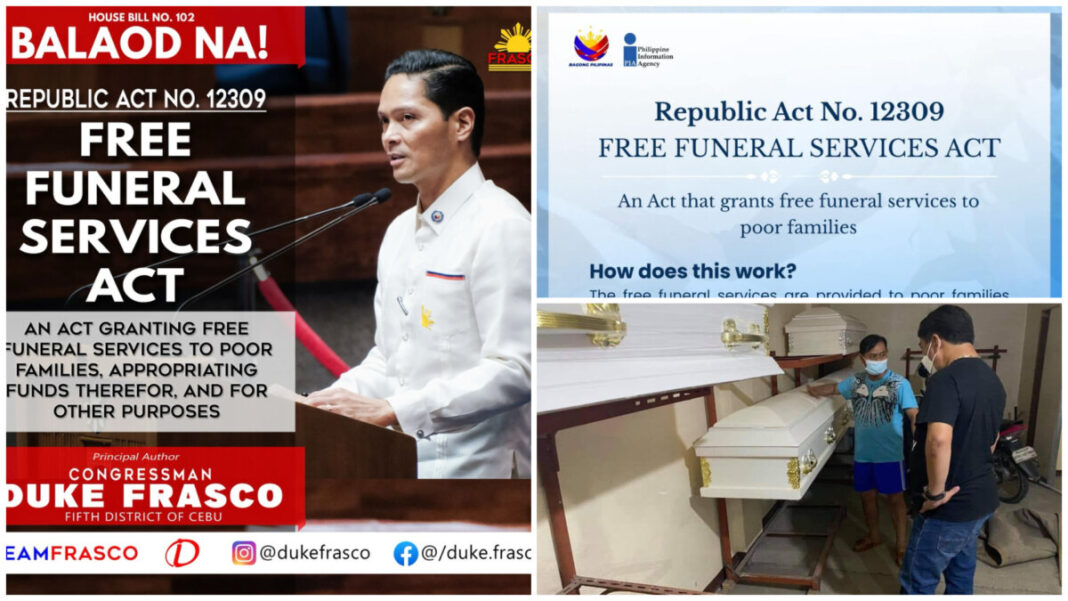
A new law promises to ease the financial burden of loss for thousands of poor Filipino families. Republic Act No. 12309, or the “Free Funeral Services Act,” has officially lapsed into law on September 28, 2025, after President Ferdinand Marcos Jr. neither signed nor vetoed it within the 30-day period prescribed by the Constitution.
Under Article VI, Section 27(1) of the 1987 Constitution, a bill transmitted to the President automatically becomes law if no action is taken within 30 days. Although RA 12309 has not yet been published in the Official Gazette as of press time, it is now officially recognized as a law of the land.
A Lifeline in Times of Grief
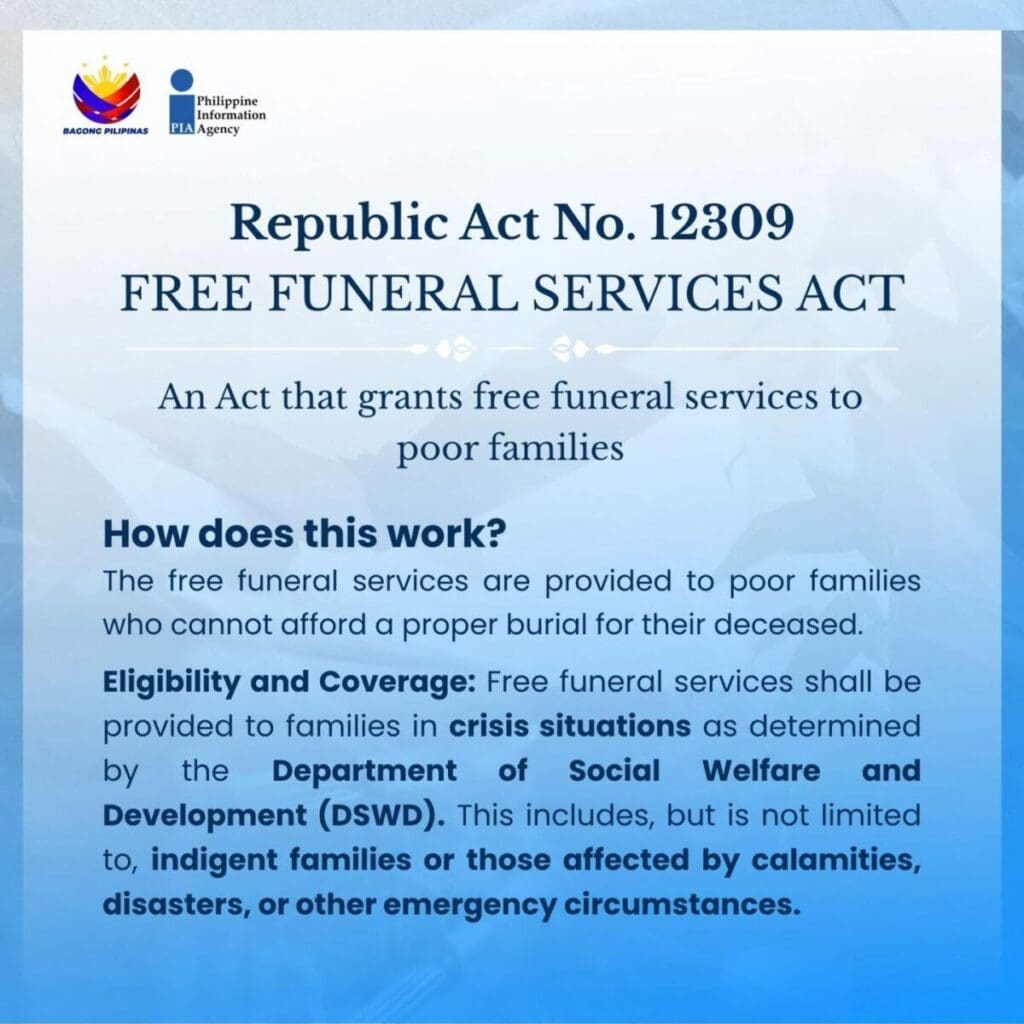
The Free Funeral Services Act seeks to institutionalize the assistance currently offered by the Department of Social Welfare and Development (DSWD) under its Assistance to Individuals in Crisis Situations (AICS) program.
Before RA 12309, the DSWD provided funeral aid ranging from ₱5,000 to ₱50,000, depending on the family’s financial need and documentation. With the new law, families identified as “in crisis situations”, including indigent households and those affected by disasters or emergencies, will receive a comprehensive funeral package at no cost.
This package will cover every essential aspect of the funeral process:
• Preparation of funeral documents
• Embalming
• Burial services
• Transportation of remains
• Cremation and inurnment
• Provision of a casket or urn
Who Can Avail of the Free Funeral Package?
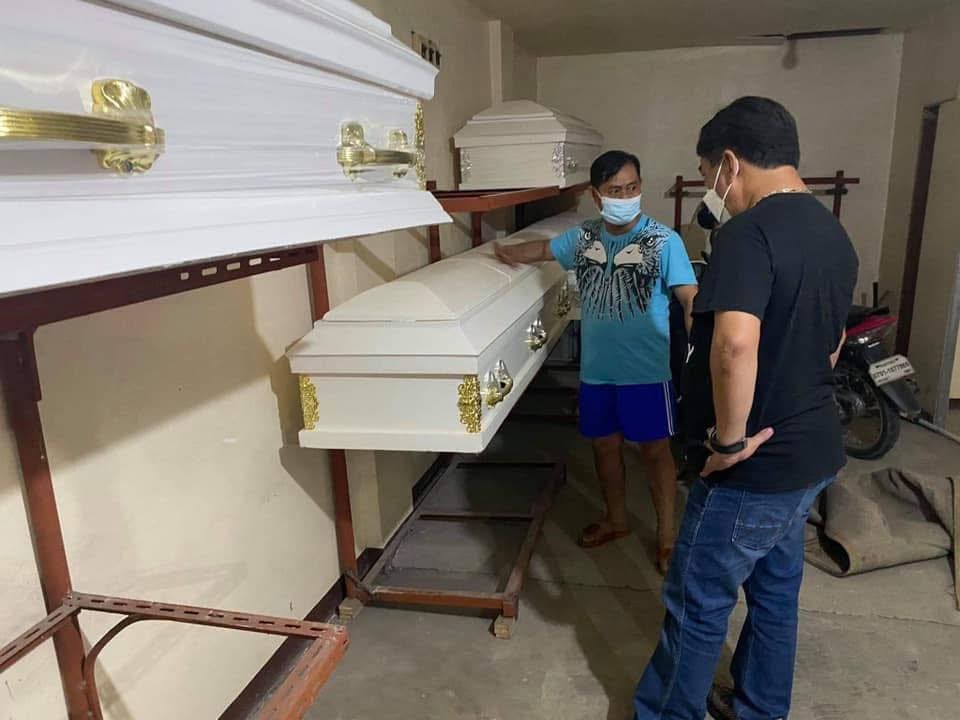
To qualify, beneficiaries must be validated by the DSWD as being in crisis or financially incapable. Families must submit the following documents to avail of the service:
• A valid ID of the deceased’s representative
• A death certificate issued by the hospital or local health office
• A funeral contract signed by the family representative, the funeral establishment, and authorized DSWD personnel
• A social case study report prepared by a DSWD social worker
Payments for the funeral establishments providing these services will be handled by the DSWD’s regional offices, upon approval of the regional director, based on the signed contract.
Funding and Implementation Challenges
The initial funding for RA 12309 will be drawn from the ₱44.75-billion AICS budget for 2025. However, the DSWD’s proposed budget for next year does not include a specific line item for the Free Funeral Services Act.
To address potential shortfalls, lawmakers have moved to increase the AICS budget for 2026, from ₱27 billion to ₱60 billion, to accommodate the new law’s implementation and sustain its funding requirements.
Despite this, some policymakers have raised concerns about how swiftly and efficiently the DSWD can roll out the program nationwide, especially given the agency’s existing caseload under AICS, which also covers medical, transportation, and educational aid.
From Congress to Law
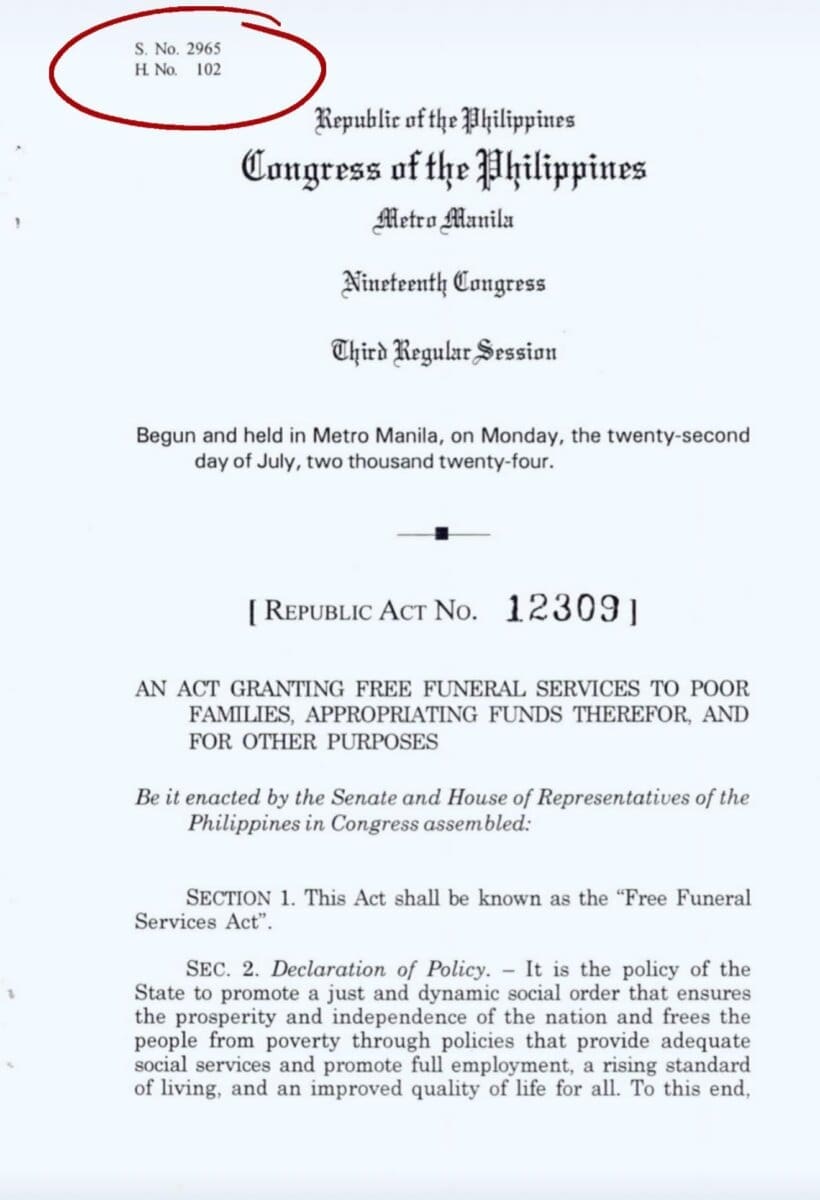
The bill was first passed by the Senate during the 19th Congress as Senate Bill No. 2965 on June 2, 2025. The House of Representatives later adopted the Senate’s version as an amendment to its House Bill No. 102 on June 11.
The enrolled bill was transmitted to Malacañang on August 28, giving the President until September 27 to act. By choosing not to sign or veto it, President Marcos allowed the measure to lapse into law the following day, on September 28.
A Final Act of Compassion
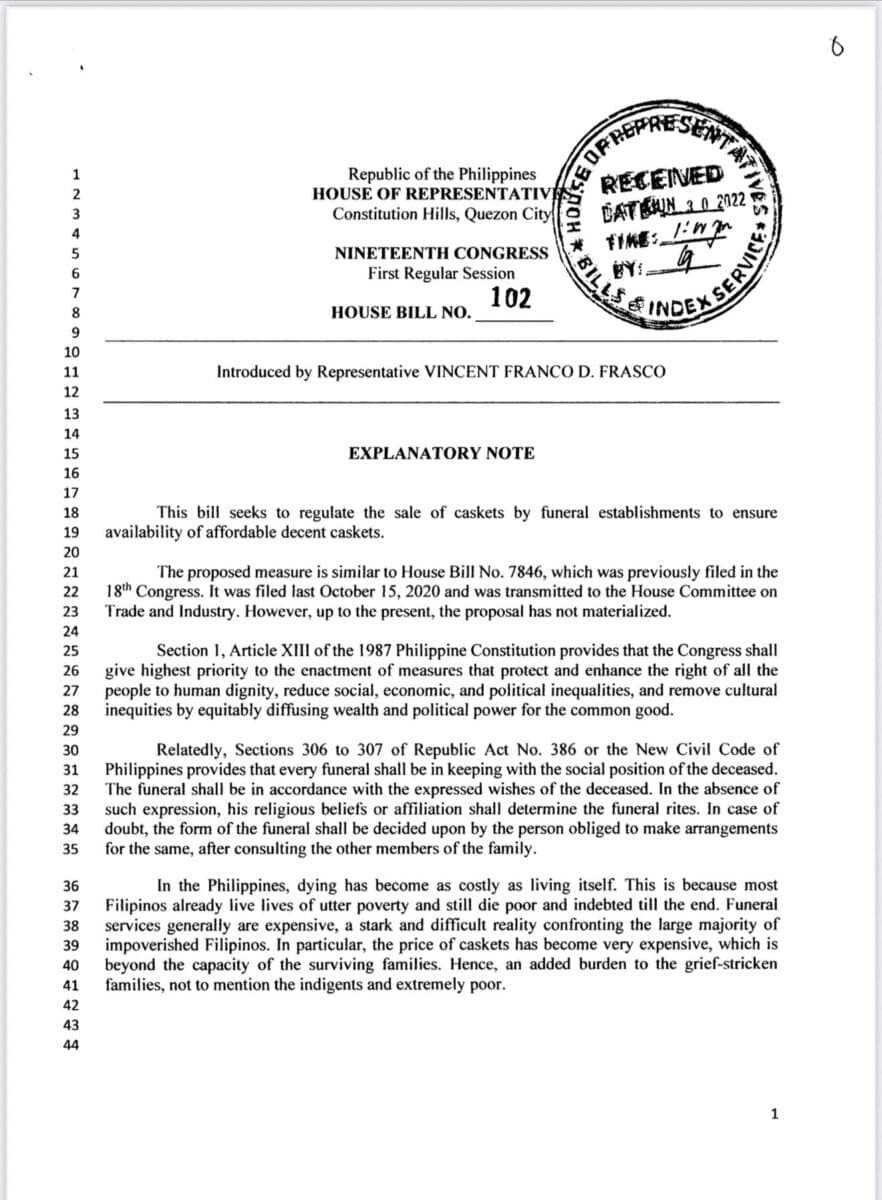
For countless Filipinos who struggle to give their loved ones a dignified farewell, RA 12309 represents more than just financial relief, it is a gesture of compassion during life’s most painful moments.
As the DSWD prepares to roll out the program’s implementing rules and guidelines, the new law is seen as a crucial step toward dignity in death for the country’s poorest citizens, a reminder that even in mourning, no Filipino should be left behind.

